ARTICLE AD BOX

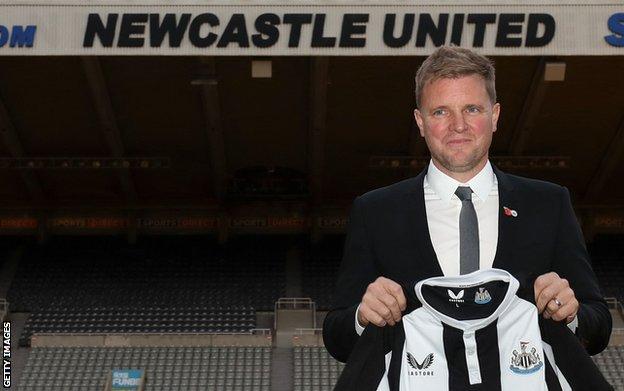 Howe was appointed as Newcastle boss on 8 November
Howe was appointed as Newcastle boss on 8 NovemberAs Paulo Fonseca finished his third interview for the managerial vacancy at Newcastle United, he must have felt confident he had got the job.
Yes, some of the questions had not been what he might have expected - some were about the fans, one about his relationship with the media, and not many had been football-specific, the kind that enable coaches to explain how they improve teams.
But that was not unduly concerning - more than one person involved in chats with Newcastle has spoken of finding the questions put to managers more akin to ones fans might ask, rather than the type posed by officials of elite clubs.
Yet while Fonseca's conversations were finished, the process was far from over.
His potential employers still had a final round of interviews to conduct with the other remaining candidates, Eddie Howe and Unai Emery.
Then, even before those could happen, Fonseca was told the club were going in a different direction. On the weekend of Newcastle's 3-0 home loss to Chelsea, the news came through that the job was not his and he was no longer needed. The Magpies' new owners had their man - it was to be Villarreal's former Arsenal boss Emery.
Except, of course, no deal was done and the events of the following few days confused Emery to such an extent that he walked away from the chance to take over one of the world's richest clubs.
It was one example of how Newcastle's new owners have endured a turbulent month since taking over from Mike Ashley in a blaze of publicity, and no little controversy.

In a club interview last week, Amanda Staveley - the woman fronting the takeover and part owner - described her first month in charge at St James' Park as "pretty exhausting".
"Every 24 hours of every day, except a few hours' sleep," she said, reflecting on the time pressures and commitment required.
"It has been exhausting, exhilarating, but the welcome has been so extraordinary and special. We don't want to let anyone down. One of the things is to communicate with fans that if we do make mistakes, we will quickly own up to them and put things right. Very challenging five weeks but very rewarding."
And there have undoubtedly been mistakes.
Almost exactly a month passed between the £305m Saudi-Arabia-backed takeover of the club being completed and the announcement on 8 November that former Bournemouth boss Howe was to be Steve Bruce's successor.
But the news also came well over a year after sources close to the new owners were briefing that a deal was imminent. That proved premature and the then prospective owners backed away.
While the deal did not happen, the delay meant Saudi Arabia's Public Investment Fund (PIF), financier Staveley and the Reuben brothers had time to plan.
Yet once in position there was no immediate removal of the manager. Bruce was allowed to continue for one match only, taking charge of his 1,000th game, a 3-2 defeat by Tottenham, telling journalists in a news conference beforehand that they "deserve a slap" for reporting he was set to be dismissed.
But those stories had substance - again, briefings proved inaccurate, by a matter of days anyway.
When Bruce finally did leave, on 20 October, the manager search - which might have begun much earlier - really kicked into action. It would prove protracted, though, and appeared to lack clear direction, despite all the time that had elapsed since the owners first knew a deal was a possibility.
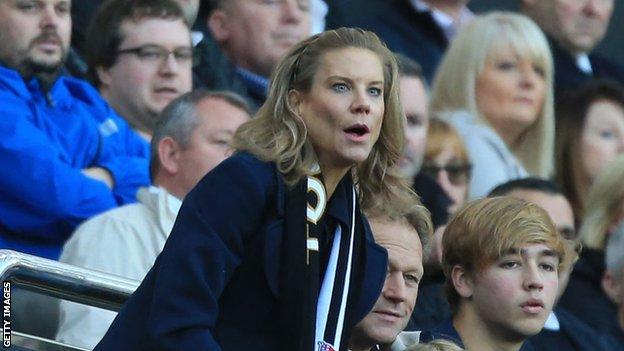 Staveley and her fellow new owners were given a rapturous reception as they attended the 3-2 home loss to Tottenham on 17 October - Bruce's last as Magpies manager
Staveley and her fellow new owners were given a rapturous reception as they attended the 3-2 home loss to Tottenham on 17 October - Bruce's last as Magpies managerThey eventually landed on Howe, of course, but via a circuitous route. Staveley subsequently spoke of the former Bournemouth manager being "the perfect fit". But he was not the first choice.
That was Rafael Benitez - but it quickly became clear he would not leave Everton.
Staveley and husband Mehrdad Ghodoussi turned their attentions elsewhere, with Emery high on their list.
Emery showed real interest in the job and Newcastle were convinced they had their man. Again, widespread reports appeared in the media saying Emery was set to be appointed and the deal was nearly done.
Except it wasn't and, once again, the briefings had turned out to be unreliable.
On 2 November, Emery had an important Champions League game to prepare for with Villarreal and asked to be left alone to focus on that match. But as kick-off approached, those reports became more definitive - this would be his final game in charge of the Spanish side. More briefings.
Those leaks made life difficult for Emery. And if this was how business was to be conducted, did that make for a suitable working environment? Emery felt unduly pressured.
His son, Villarreal players and Fernando Roig Nogueroles - the owner's son who is in charge of day-to-day operations - all told him to stay, the latter on the pitch after the win over Young Boys and then also in a phone call around 1am.
The decision was made and revealed by BBC Sport just a few hours after Villarreal's match finished.
It was an embarrassing turn of events for Newcastle's new owners but indicative of what could generously be described as a naive approach, or less charitably characterised as a lack of understanding of how these processes take place.
The role of Lee Charnley, managing director under Ashley, is also causing some confusion. Why was he on video calls with candidates or their representatives when his own role was - and still is - unclear? Why has no new chief executive been appointed?
The answer to the first question, at least, is that Charnley remains in position and is hopeful of staying on.
And that is illustrative of one of the problems the club are facing. There is an old structure which needs to be reviewed and, potentially, dismantled, at the same time as a new one is implemented.
All the while business continues, games are played, January's transfer window looms.
The club have made an approach for Atletico Madrid defender Kieran Trippier and did so before Howe had been selected. So who is making that call? There is no director of football and at that stage there was no manager, so whose vision is this?
To their credit, the new owners have been open about their mistakes. They have been saying sorry privately for errors they accept they have made. They know they have to improve but it's early days and a transitional period. Staveley said as much last week.
As attention shifted to Howe - the owners had previously either held talks with, considered or been offered Benitez, Fonseca, Emery, Roberto Martinez, Lucien Favre, Joachim Low, Xavi and Antonio Conte as part of their long search - caretaker manager Graeme Jones remained in the dark.
He would take charge against Brighton on 6 November, a 1-1 draw that meant Newcastle recorded the longest winless start to a season in their history.
What was causing the delay in deciding on the right candidate? It became known that data was at the heart of Newcastle's managerial decision-making process, something Staveley referenced last week.
"We, and particularly PIF, are very a process-driven organisation. One thing we've learned in football is that things move incredibly quickly," she said in her club interview.
"We met and spoke with Eddie some time ago. We actually discussed his appointment back when Mike [Ashley] was running the club. But we had to do a full search of the marketplace to find the perfect fit and Eddie is the perfect fit. We couldn't have imagined bringing in a better manager, he's so dynamic.
"One of the things when we do a lot of analysis of managers is analytics and data. He scored so highly across all mediums."
As well as that trust in data over and above other football criteria, negotiations for Howe's assistants also led to the perception his appointment had been delayed. In one case, it was a matter of less than £200,000.
That has sent a mixed message to the market - aren't they the richest club in the world? Some sources consider it to be indicative of what might come, especially if the club gets relegated, and others suggest it was a clever way to reduce expectations to those offering players and managers.
The Reuben brothers have been offered the support of a network of experts in the pursuit of making better decisions and better understanding football's processes. The club are reviewing how things are done and trying to improve.
It has been a challenging first month or so with several false starts. Have they finally got the right man? Does it even matter unless they can get the structure right in the short term?
Only time will tell.
Additional reporting by Alistair Magowan

- Our coverage of Newcastle United is bigger and better than ever before - here's everything you need to know to make sure you never miss a moment
- Everything Newcastle - go straight to all the best content


 3 years ago
119
3 years ago
119
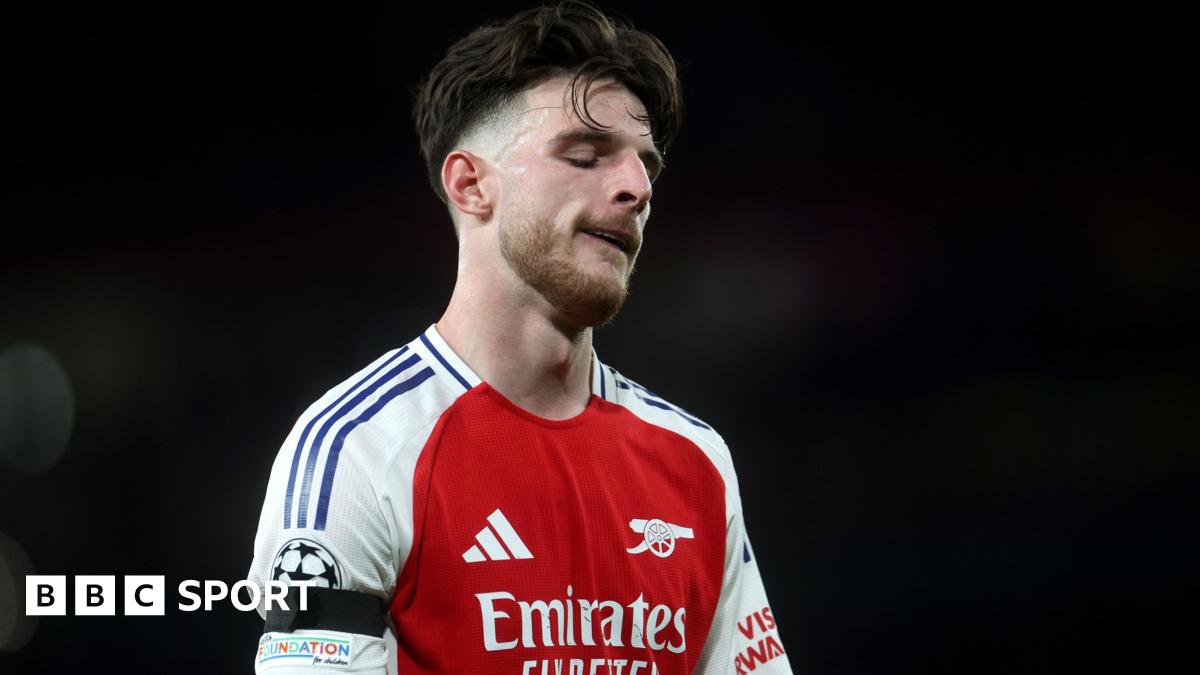
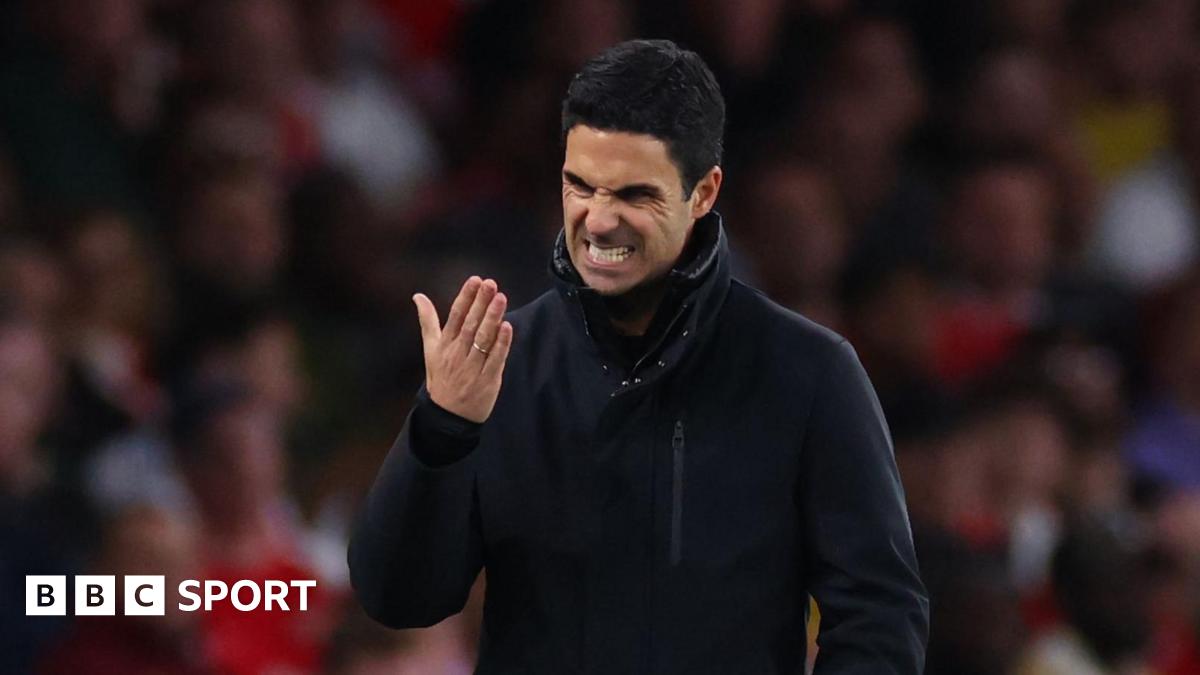
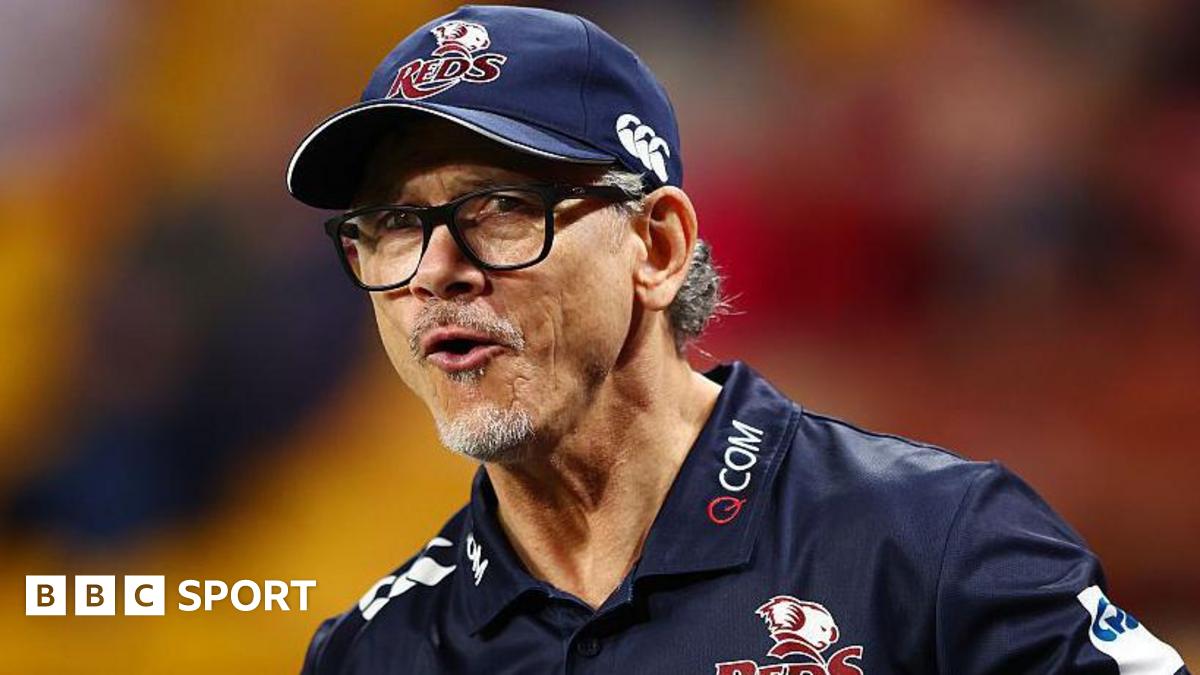





 English (US) ·
English (US) ·